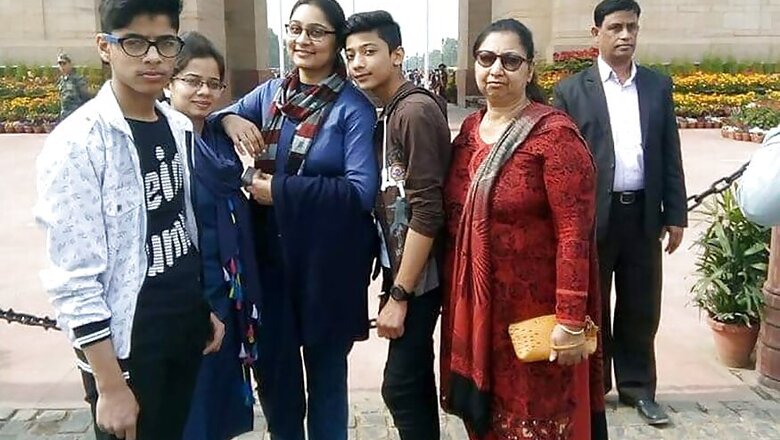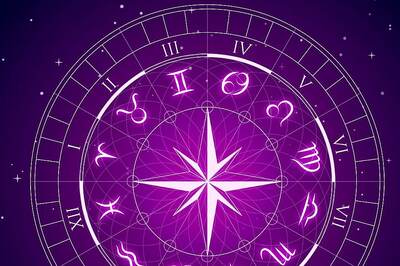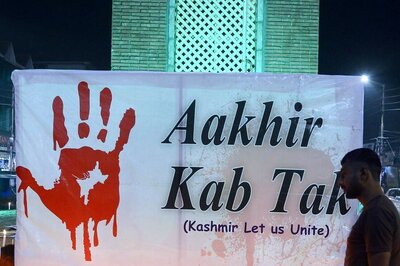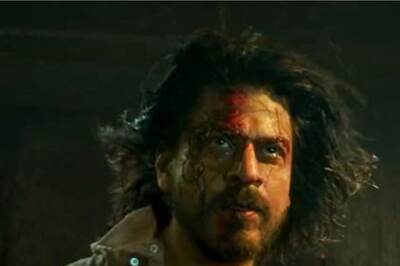
views
New Delhi: Flaws in the new Mental Health Act, 2017 notified in June may have played a role in the mysterious deaths of 11 members of a family in north Delhi’s Burari, said Dr. Nimesh Desai, the Director of the Institute of Human Behaviour and Allied Sciences (IHBAS).
Addressing a press conference hosted by the Indian Women’s Press Corps in New Delhi, the veteran professor of psychiatry said, “The new Mental Health Act allows those with mental illness the right to not seek treatment or refuse consent.”
“This Act makes treating people, who don’t accept that they have mental illness, very difficult through legal guarantee. Think about Lalit Bhatia. Someone may have tried to ask him to get treatment. Or not,” Dr Desai said, adding that the eldest son was definitely mentally ill.
Confirming Delhi Police’s theory of the 45-year-old son passing on the delusion of being possessed by his father, Dr Desai said that shared or induced delusions were not uncommon in the world, though they were highly unlikely.
They also have the right to direct their preferred choice of treatment under advanced directive.
The amendment was made to abolish illegal incarceration into mental homes, as was rampant earlier, but this may end up adding to the problem, feels Dr Desai.
“The Burari tragedy has raised fresh questions about giving a mentally ill person explicit rights to refuse treatment in the name of consent. It is an attempt to imitate the policies of the west,” he said adding that the decision may have been aided by the powerful pharma lobbies.
The Mental Health Bill 2016 which replaced the previous 1987 Act in 2017 is said to be a landmark bill in terms of mental health in India.
It provided various rights to those suffering from mental health who were often victims of stigma, malpractice, assault and abuse within the mental healthcare system.
The new Act makes it a prerequisite for a Mental Health Review Board to approve the order of treating someone for mental illness in case they do not provide consent, even if the person trying to enforce the treatment is a family member or a medical representative.
The Act, under advance directive, also allows those with mental illness to choose a future representative to take decisions on their behalf in case their condition worsens, though Dr Desai predicts challenges in the implementation of AD with the five-member review and others procedural issues.
Another interesting change brought about by the Act was the decriminalisation of attempted suicide. Dr Desai hailed this as a step towards betterment of mental healthcare in India.
“Not all suicides are due to mental disorders. Some are due to social issues, some due to interpersonal issues… The Burari deaths were the result of a shared delusion which increased due to access to easy religious and spiritual apparatus and no treatment,” said Desai.
By ‘spiritual apparatus’ the doctor was apparently referring to deaths which many attributed to the blind following of a religious cult.
Ten of the bodies were found hanging with their faces covered and one was found strangled in another room.
Several detailed hand-written notes recovered from the Bhatia house spelled out the process of the ritualistic suicide which would, allegedly, allow the family to ‘attain salvation’.
Investigators have also linked the deaths to a certain occultist involved in pushing the suicides.
But the doctor was quick to dodge the bullet when asked if religious fanaticism or fundamentalism and absence of scientific reasoning and discourse were responsible (in part) for such disorders.
“The abnormality of the belief system is obviously judged in the context of existing social norms. Dominant practices will always exist…These victims happened to have access to a kind of spiritual apparatus that completely suited and fed their dysfunctional beliefs.” Dr Desai said.




















Comments
0 comment